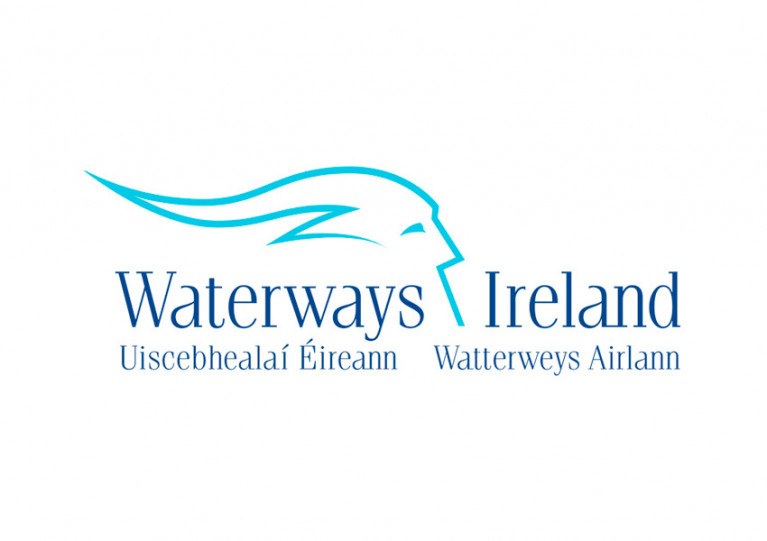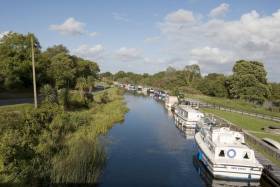Displaying items by tag: Houseboats
Houseboat Dwellers Fear Displacement From Grand Canal Dock Over Proposed Hike in Fees
Waterways Ireland has been accused of attempting to gentrify Grand Canal Dock with plans to hike annual fees for houseboat dwellers by nearly 700 per cent.
Residents among the 30 vessels at the Dublin city centre mooring told The Journal that they have no objection in principle to an increase in the annual mooring fees, which include access to electricity, water and refuse collection.
But they argue that the sharp rise from €578 annually to €4,000, rising to €7,500 over six years, is “not affordable or realistic”.
In response, the cross-border body for Ireland’s inland waterways says the proposed rise in charges is in line with the “superior” facilities at Grand Canal Dock — adding that any houseboat owners unwilling to pay would be “facilitated at an alternative location”.
The Journal has more on the story HERE.
Legislating for Houseboats on Canals Near Dublin Will Be a Hot Topic
There are nearly 17,000 boats on the inland waterways, of which 9,000 are registered on the Shannon, 7,000 on the Erne, and 600 boats on the canals.
New bye-laws to control usage of the waterways are being prepared, which will have to deal with houseboats, and that is likely to be a hot topic.
Waterways Ireland, the North/South body, set up under the Good Friday Agreement, manages the waterways in Northern Ireland and the Republic and has drawn up draft Bye-Laws to replace the three sets of existing regulations controlling their use, some of which are 40 years old.
"About 150 of the boats on the canals are now being used either for full-time living or during the week by students at College"
Paddy Harkin, Inspector of Navigation at Waterways Ireland, has told me that the new Bye-Laws will have to deal with the ‘hot topic’ of houseboats on the canals, in which there has been a considerable increase close to Dublin. Pressure on housing is evident in that about 150 of the boats on the canals are now being used either for full-time living or during the week by students at College.
A public consultation, which closes on October 2, has raised several issues about the use of the waterways, including houseboats and safety and mooring in the harbours.
Listen to Paddy Harkin about the legislation plans in this clip below
You can hear the full interview on the Maritime Ireland Podcast. Details about the consultation are on: waterwaysireland.org
‘Compliance Programme’ Results in Big Jump in Boat Removals from Ireland’s Canals in 2020
Boat removals from Ireland’s canals jumped in 2020 — with the total for the year at 150% of the previous four years combined.
The figures were revealed by Minister of State for Heritage, Malcolm Noonan in his response to a Dáil question from Dun Laoghaire TD Cormac Devlin requesting a breakdown of the number of boats removed from rivers, canals and inland waterways between 2016 and 2020.
Across the canals network (and excluding the Shannon Navigation and Shannon-Erne Waterway) under the jurisdiction of Waterways Ireland, a total of 45 boats deemed to be in breach of bye-laws were removed in 2020.
This compares to just seven the previous year, 17 in 2018, none in 2017 and seven in 2016 — a total of 31 in the four years leading to 2020.
On the Shannon Navigation and Shannon-Erne Waterway, the figures over the last three years were more consistent, with 17 removals in 2020, 12 in 2019 and 15 in 2018. There were no removals on these waterways in 2017 or 2016.
Minister Noonan noted that the rise in removals on the canals last year can be credited to a compliance programme initiated by Waterways Ireland “to remove abandoned, sunken and non-compliant boats, vessels and structures from the canals network”.
He added: “This programme by the agency has resulted in improved water quality, improved compliance, and removed many unsightly boats, vessels and structures from the waterways.”
The Canals Bye Laws 1988 and the Shannon Navigation Bye Laws 1992 provide Waterways Ireland with the powers to remove boats, vessels and other structures that are in breach of the bye-laws.
As previously reported on Afloat.ie, a number of live-aboard barge owners on the Grand Canal feared losing their homes under last year’s removal drive.
But they were spared at the 11th hour when Minister Noonan stepped in to promise engagement with Waterways Ireland on a long-term solution.
Young Armagh Couple Opt for Mortgage-Free Living on Lough Erne Narrowboat
One young Northern Ireland couple have eschewed the heated land-based property ladder and put their savings afloat with a narrowboat, as ArmaghI reports.
Sophie Durand and Josh Boyd, both from Co Armagh and in their early 20s, have now adopted “slow, sustainable and also happier way of living” afloat on the inland waterways at Lough Erne.
Between them they raised the £53,000 (€62,000) to purchase the narrowboat Qisma — Arabic for ‘destiny’ — which has a permanent mooring at a monthly cost of £170 (€200).
And while their compact choice of home might not be to everyone’s taste, they’re now living mortgage-free after spending a fraction of the average deposit.
ArmaghI has more on the story HERE.
Waterways Ireland is commissioning a feasibility study on options for sustainable on-the-water living on Ireland’s canal network.
Details of the request for tender (RFT) are available online, with the study expected to include analysis of on-the-water living conditions abroad as well as assessing the suitability of Ireland’s inland waterways for similar development, as promised last year by Minister of State for Heritage Malcolm Noonan.
Currently, so-called ‘liveaboard’ barge owners have found themselves in legal limbo as canal bye-laws prohibit the mooring of vessels in any one spot for longer than five days.
Despite a growing demand for houseboat living in Ireland, there are only 28 residential moorings across the country — with the majority at the heavily oversubscribed Grand Canal Dock.
The deadline for submissions on the RFT is 5pm on Thursday 9 August.
Legal Limbo For ‘Liveaboard’ Barge Owners On Dublin’s Canals
“The body responsible for canal boating doesn’t seem to want boating on the canals.”
That’s the response of Gary Long, one of a number of barge owner on the Grand Canal in Dublin at the centre of a recent controversy over houseboat moorings on the inland waterway, as he spoke to The Irish Times this week.
The ‘liveaboard’ barge owners had faced eviction from their homes by Waterways Ireland this month as current by-laws prohibit mooring in any one spot for longer than five days.
The owners were given a reprieve of sorts by the New Minister of State for Heritage, Malcolm Noonan, and assured that their vessels would not be confiscated and sold off.
And the minister has promised that Waterways Ireland will engage in “finding a long-term, sustainable solution to regularise the use of the canals”.
But for now, liveaboards like Gary Long — and Luís Gómezcala who lives on his boat at the 12th Lock on the Royal Canal — remain in legal limbo.
The Irish Times has more on the story HERE.
Waterways Ireland has committed to looking for a long-term solution for people living on houseboats on the Grand Canal, it has emerged.
The news comes after last week’s final-hour reprieve for a number of barge owners who had faced eviction under the current by-law which prohibits mooring in any one spot for longer than five consecutive days.
They also faced the prospect of losing their vessels under original plans to lift them from the canal and impound them for a month before selling them off.
New Minister of State for Heritage, Malcolm Noonan, stepped in to assure these barge owners that theirs and others’ “genuine or legitimate houseboats or so-called ‘live-ons’” would not be removed.
He added that Waterways Ireland, the cross-border body that manages Ireland’s inland waterways, would now engage “in a collaborative process with all stakeholders around finding a long-term, sustainable solution to regularise the use of the canals”.
This is in addition to Waterways Ireland’s 10-year strategic review, which is expected to be available for consultation later this year — and will consider the likes of new infrastructure on the canal to cater for the requirements of houseboats.
TheJournal.ie has more on the story HERE.
Despite the growing demand for houseboat living in Ireland, there are only 28 residential moorings across the whole of the country, as RTÉ Radio 1’s Morning Ireland reports today (Wednesday 3 July).
Grand Canal Dock alone has a waiting list of some 215 hopefuls for its 20 places, and the programme hears from some of those fortunate enough to have made their home on Ireland’s inland waterways.
Waterways Ireland says it received as many as 10 queries a week from prospective houseboat residents — who will likely be waiting some time as only Grand Canal Dock and Shannon Harbour, with eight moorings, have provision for live-aboard homes.
Others make do with part-time waterways living, using the current 90-day permits to move around the country’s canals and rivers.
But with demand on the increase, it’s a situation that Waterways Ireland acknowledges has to change. RTÉ Radio 1 has more on the report HERE.
































































